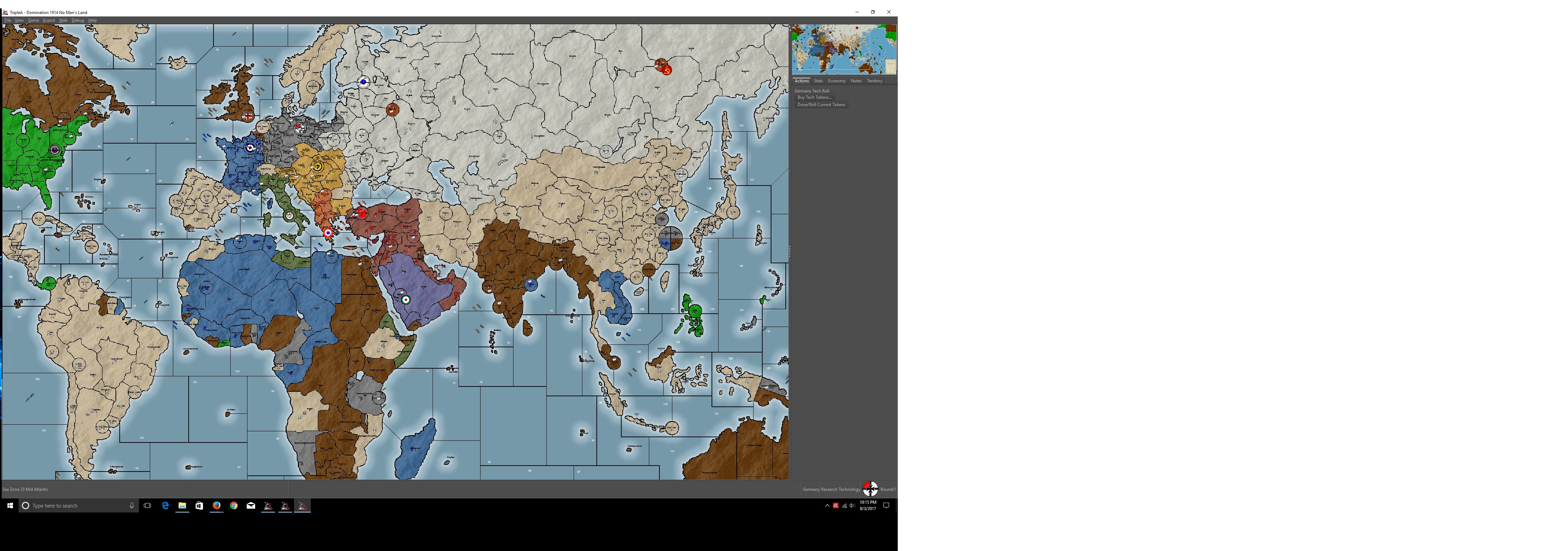@Wolfshanze:
Hindsight is always 20/20… there’s many ways almost any war could have gone the other way from history if the losing side knew then what is known now.
Agreed. It’s easy to construct “what if?” scenarios with a few throwaway sentences. A more challenging task is to develop a compelling picture of Germany’s overall economic, political, and military picture; and to demonstrate a viable military strategy within the context of that picture.
Germany had a prewar population of 69 million, as opposed to 169 million for the Soviet Union. In the key year of 1942, the Soviet Union produced 3 - 4 times as many land weapons as Germany, and nearly twice as many military aircraft. Germany lacked oil, food, and raw materials. Major Western nations were pro-Soviet and anti-German. By the late fall of 1941, the Red Army consisted of 600 divisions, compared to just 150 divisions for the German Army. (Granted, a German division was somewhat larger than a Soviet division, so the disparity was less than 4:1.) The United States had virtually unlimited industrial potential. Even if it had stayed at “peace,” the plan was to produce overwhelming numbers of military aircraft, and to send half of those aircraft to Britain for use against Germany. Moreover, the U.S. was led by a highly pro-war president, who by gradual steps was moving the U.S. ever closer to war. “Don’t declare war on the U.S.” sounds good as a throwaway line, but does not by itself constitute a strategy for preventing escalating levels of American industrial and military involvement.
My best “victory scenario” for Germany would be as follows:
Step 1: Invade Poland and France, as happened in the actual war.
Step 2: Invade Britain, as proposed by General von Manstein in his book Lost Victories.
Step 3: Grab much of the Middle East in 1940, when it was weakly defended.
Step 4: Launch Operation Barbarossa about when it was launched. Put von Manstein in charge, to achieve even better initial results than those the Germans actually achieved.
Step 5: Accept Stalin’s peace offer in the fall of '41.
Step 6: Sign a peace treaty with the remnants of the British Empire. Or, if the British government is still unwilling to discuss peace, continue conquering British colonies. Recruit large numbers of soldiers among the inhabitants of German-held colonies to counter the soldiers the British recruit from the colonies they control.
These six steps, in themselves, would not be sufficient to win Germany the war. In particular, the United States would stand unfought, with an extremely anti-German and pro-war president. The Soviet Union would also be able to lick its wounds, and harness a core of military and industrial strength to resume its war against Germany at a time of its own choosing. These dangers would be exacerbated by the American invention of the nuclear bomb.
In 1944, Germany’s military production was triple what it had been in 1942. Germany’s 1944 production was roughly the same as that of the Soviet Union, and about half that of the United States. For Germany, increased military production was a necessary, but not a sufficient, component of a strategy to defend itself against an alliance between the U.S. and the U.S.S.R.
Quite possibly Germany would have been well-served to resume its war against the Soviet Union in 1946. (Assuming, of course, that Stalin hadn’t chosen an earlier resumption date.) By 1946 Germany would have had better tanks than the Soviet Union, better handheld anti-tank weapons, the world’s only assault rifles. Unlike the Soviets, Germany would have had jet aircraft. Given these qualitative advantages, as well as the advantages obtained by having tripled its military production between '42 and '44, Germany’s offensive against the Soviet Union would likely have been successful. Moreover, its jet aircraft could have kept the skies clear of Allied aircraft, thus protecting German cities from nuclear devastation. This time, Germany would not make peace with the Soviet Union on any conditions other than unconditional surrender.
With the fall of the Soviet Union, and with Britain’s colonial empire either conquered or pacified, the only strategic threat left would be the United States. By itself it would be difficult for the United States to wage war against Germany. It wouldn’t have Britain to use as a base from which to perform its strategic bombing, and it wouldn’t have the Red Army to engage and destroy the bulk of the German Army. Germany’s jet aircraft would provide initial protection against American nuclear attack. Later, Germany would develop the ability to engage in retaliatory strikes. Its chemical weapons program was about ten years ahead of any Allied nation, so it could have used a devastating chemical attack as a substitute for a nuclear attack. It was in the process of developing intercontinental ballistic missiles when the war ended, and those missiles could have carried payloads to the eastern seaboard of the United States. Eventually Germany would have developed nuclear weapons of its own. Those weapons–in combination with its ICBM technology–would have provided the ultimate long-term guarantee of German security.
I recognize the above plan is not without risks. It contains a number of opportunities for things to have gone wrong. But it’s also the best, most likely to succeed plan I can think of to protect Germany from Allied invasion.
